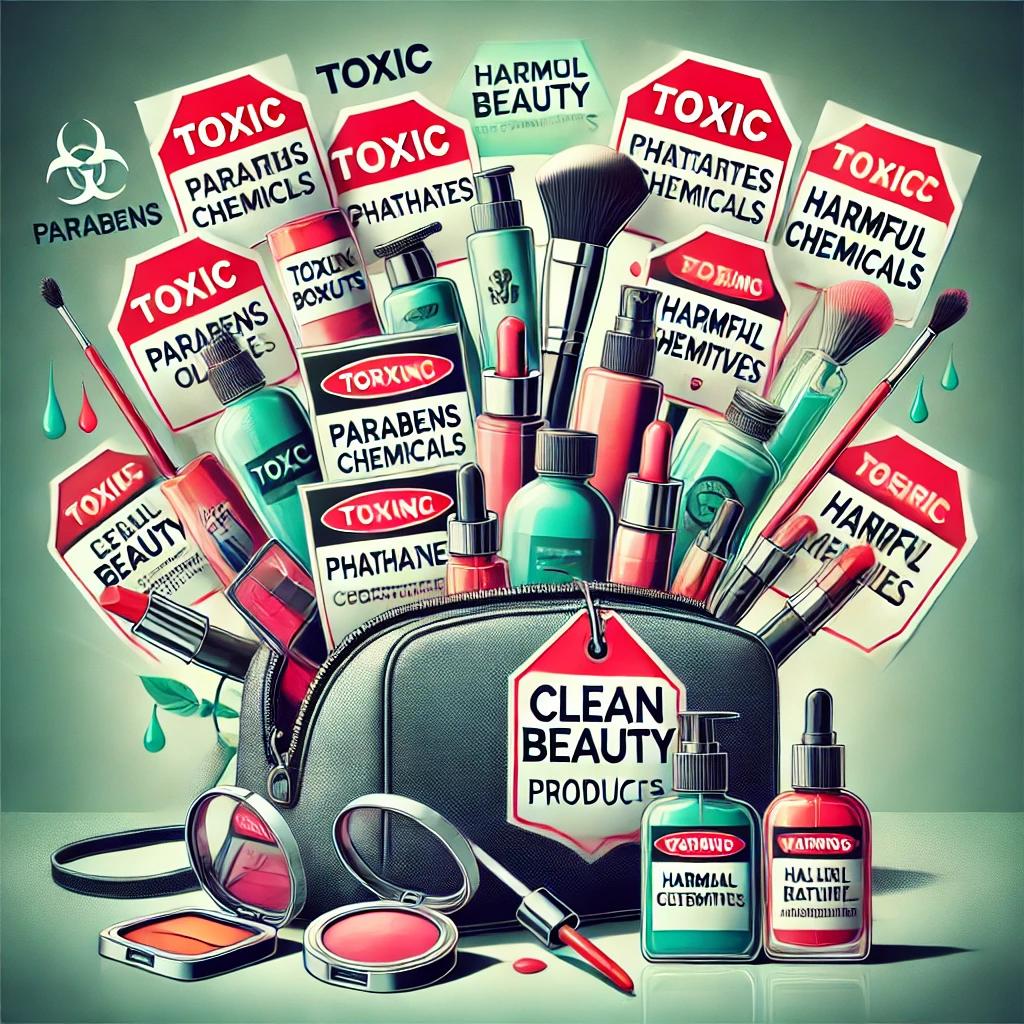Can You Eat Sushi? – Debunking Food Myths During Pregnancy
When you’re pregnant, everyone suddenly has an opinion on what you should or shouldn’t eat. And if you’re a sushi lover, you’ve probably heard it all—”Stay away from sushi!” or “Raw fish is a no-go during pregnancy!” But is this food ban really necessary, or is it just another pregnancy myth? The truth is, sushi isn’t completely off-limits, but there are some important things to know before indulging in your favorite rolls. Let’s dive into the facts and clear up the confusion!
1. Raw vs. Cooked – What’s Safe and What’s Not?
The main concern with sushi during pregnancy is raw fish, which may contain harmful bacteria or parasites like Listeria. While most adults can handle these risks, a pregnant immune system is more vulnerable, and foodborne illnesses can have more serious effects on both you and your baby.
But here’s the good news: You don’t have to say goodbye to sushi entirely! Cooked sushi options like tempura shrimp rolls, eel rolls (unagi), or California rolls with imitation crab are completely safe. These rolls let you satisfy your cravings while avoiding any risks associated with raw fish.
If you really want sushi with fish, make sure it’s made with low-mercury, fully cooked seafood like salmon, shrimp, or crab. High-mercury fish like tuna, swordfish, and mackerel should be limited since they can affect your baby’s brain development.
2. Can You Eat Raw Fish from a Trusted Source?
Here’s where things get interesting—some experts argue that high-quality raw fish from a reputable sushi restaurant might be safe for pregnant women. In Japan, for example, many women continue eating sushi throughout pregnancy, and food safety standards are extremely high.
If you’re considering raw sushi, make sure the fish is sushi-grade, sourced from a trusted restaurant, and handled properly. Freezing fish before serving kills most parasites, reducing health risks. However, bacteria like Listeria can still be a concern, so it’s best to be cautious. If you’re unsure, talk to your doctor before making raw sushi part of your diet.
When in doubt, opt for delicious vegetarian sushi! Avocado rolls, cucumber rolls, and sweet potato tempura rolls are all safe and packed with nutrients that support a healthy pregnancy.
3. Sushi Substitutes – Satisfy Your Cravings Without the Risk
If avoiding raw fish makes you feel like you’re missing out, there are plenty of creative ways to enjoy the sushi experience while staying safe during pregnancy.
- Make your own sushi at home! Try rolling sushi with cooked salmon, avocado, or tofu for a fun and safe meal.
- Try poke bowls with cooked seafood! Many restaurants offer pregnancy-safe poke options with fully cooked shrimp or teriyaki chicken.
- Opt for sushi-inspired bowls! A sushi rice bowl with seaweed, avocado, cucumber, and sesame seeds can be just as satisfying.
- Use smoked or canned salmon! These are great alternatives that still give you that rich, sushi-like flavor without the risk.
If you’re craving that signature sushi taste, adding soy sauce, pickled ginger, and wasabi to your meal can bring that authentic sushi feel—just make sure to go easy on the soy sauce to avoid excess sodium!
Final Thoughts
So, can you eat sushi during pregnancy? The answer isn’t a simple yes or no—it depends on what kind of sushi you choose. Cooked sushi options, vegetarian rolls, and low-mercury fish are completely safe, while raw fish carries some risks that you should carefully consider.
The key is to make informed choices based on what makes you feel comfortable. If you’re craving sushi, you don’t have to completely give it up—just be mindful of your options and enjoy it in a way that’s both satisfying and safe for you and your baby.
Now, go ahead and treat yourself to that delicious sushi roll—just make sure it’s pregnancy-approved! 🍣😊
Morning Sickness Truths – Does It Predict Your Baby’s Gender?

If you’ve ever been pregnant or talked to someone who is, you’ve probably heard the old wives’ tale—morning sickness can predict your baby’s gender! Some say extreme nausea means you’re having a girl, while mild sickness suggests a boy. But is there any truth to this, or is it just another pregnancy myth passed down through generations? Let’s explore the science, the stories, and the fun behind this popular belief!
1. The Old Wives’ Tale – Where Did This Belief Come From?
For centuries, people have tried to guess a baby’s gender based on symptoms during pregnancy. Morning sickness has been one of the most talked-about signs. According to folklore, women who experience severe nausea and vomiting are more likely to be carrying a girl, while those with little to no morning sickness are supposedly expecting a boy.
The reasoning? Some believe that carrying a girl produces higher hormone levels, leading to more intense nausea. Others claim that baby girls “steal their mother’s beauty,” causing not only sickness but also dull skin and hair. Sounds dramatic, right? While these theories make for fun conversations, they aren’t exactly backed by science.
So, should you start painting the nursery pink just because you’re running to the bathroom every morning? Let’s look at the facts!
2. What Science Says About Morning Sickness and Gender
While the idea of predicting gender based on morning sickness is entertaining, research suggests that it’s not a foolproof method. However, there is some scientific evidence that supports a slight connection between severe morning sickness and carrying a girl.
A study published in The Lancet found that women with hyperemesis gravidarum—a severe form of morning sickness that causes excessive vomiting—were slightly more likely to be pregnant with a girl. Scientists believe this might be due to higher levels of hCG (human chorionic gonadotropin), a hormone produced by the placenta. Since hCG levels are often higher in pregnancies with girls, it could explain why some women experience stronger nausea.
However, the difference isn’t dramatic, and plenty of women carrying boys also experience extreme morning sickness. Many doctors agree that morning sickness is more about how your body reacts to pregnancy hormones rather than an indicator of your baby’s gender.
3. Fun Ways to Predict Your Baby’s Gender (Just for Laughs!)
Even though morning sickness isn’t a guaranteed gender predictor, there’s no harm in having a little fun with old wives’ tales! If you’re curious, try some of these other pregnancy myths that claim to reveal if you’re having a boy or a girl:
- The Sweet vs. Salty Craving Test – Craving sweets? You’re having a girl! Prefer salty snacks? It’s a boy!
- The Ring Test – Tie a string around your wedding ring and dangle it over your belly. Circular motion means girl, back and forth means boy!
- Carrying High or Low – Carrying high? It’s a girl! Carrying low? It’s a boy! (Spoiler: It actually depends on your body type and muscle tone.)
- Skin Changes – If your skin is glowing, some say it’s a boy. If you have breakouts, the myth suggests a girl.
While none of these methods are scientifically proven, they can add some fun to the pregnancy journey. And if you really want to know your baby’s gender, an ultrasound at 18-20 weeks is the most reliable way to find out!
Final Thoughts
So, does morning sickness predict your baby’s gender? The short answer—not really! While severe nausea might be slightly more common with girls, there’s no guarantee. Every pregnancy is different, and your symptoms are influenced by your body’s unique response to hormones.
Whether you’re experiencing constant nausea or breezing through pregnancy without morning sickness, the most important thing is staying healthy and hydrated. If you’re struggling with severe nausea, talk to your doctor about safe remedies to help you feel better.
At the end of the day, the gender guessing game is all part of the fun of pregnancy! Whether you’re having a boy or a girl, the best surprise is meeting your little one for the first time. 💕😊
Exercise Safety – Can You Really Lift Weights While Pregnant?
When you’re pregnant, people love giving advice—some of it helpful, some of it outdated, and some just plain wrong. One of the most common myths? “You shouldn’t lift weights while pregnant!” But is that really true? Can you still enjoy strength training without putting yourself or your baby at risk? The answer is yes—with the right precautions! Let’s break down the facts, debunk the myths, and find out how to lift safely during pregnancy.
1. The Truth About Lifting Weights During Pregnancy
Many people assume that weightlifting is dangerous for pregnant women, but that’s not necessarily the case. In fact, strength training can offer huge benefits during pregnancy! It helps maintain muscle tone, improves posture, reduces back pain, and prepares your body for the physical demands of labor and delivery.
However, lifting weights during pregnancy isn’t the same as lifting before you were pregnant. Your body is undergoing major changes—your center of gravity shifts, your joints become looser due to relaxin (a pregnancy hormone), and your core stability decreases. That’s why proper form, controlled movements, and listening to your body are more important than ever.
If you were lifting weights before pregnancy, you can continue training with modifications. If you’re new to strength training, start with light weights or bodyweight exercises to build strength safely. The key is focusing on controlled, functional movements rather than lifting as heavy as possible.
2. Safe Weightlifting Tips for Pregnancy
Lifting weights while pregnant can be safe and beneficial, but it’s important to follow some guidelines to keep yourself and your baby protected.
✔ Choose the Right Weights
This is not the time to test your one-rep max! Stick to moderate weights that allow you to perform 10–15 reps with good form. If you feel excessive strain, lower the weight.
✔ Focus on Good Form
Proper technique matters more than ever. Use slow, controlled movements and avoid jerking motions that could put pressure on your joints or core.
✔ Prioritize Core and Pelvic Floor Strength
Instead of heavy abdominal exercises like crunches, focus on core-friendly movements such as bird-dogs, side planks, and pelvic tilts. Strengthening your pelvic floor will help with delivery and postpartum recovery.
✔ Avoid Lying Flat on Your Back After the First Trimester
Lying on your back can put pressure on the vena cava, a major blood vessel, which may cause dizziness or restrict blood flow to your baby. Instead, modify exercises by using an incline bench or staying in a seated or standing position.
✔ Stay Hydrated and Rest When Needed
Your body is already working hard, so take breaks, listen to your energy levels, and stay hydrated throughout your workout.
3. Exercises to Avoid and Safe Alternatives
While many strength-training exercises are safe during pregnancy, some should be modified or skipped altogether to avoid unnecessary strain.
🚫 Avoid:
- Heavy overhead presses – These can strain your back and shoulders. Try seated overhead presses with light weights instead.
- Deep squats and deadlifts – Your pelvis is more flexible due to pregnancy hormones, increasing the risk of injury. Opt for supported squats or sumo deadlifts.
- Sit-ups and crunches – These put pressure on your core and can worsen diastasis recti (abdominal separation). Try gentle core engagement exercises instead.
- Jumping or high-impact movements – Your joints are more relaxed, making injury more likely. Stick to controlled, low-impact strength training.
✅ Great Alternatives:
- Goblet squats (with a lighter dumbbell) – Strengthens your legs without excessive strain.
- Seated rows – Helps maintain good posture as your belly grows.
- Resistance band workouts – A safe, effective way to keep muscles strong with minimal risk.
- Kettlebell swings (lightweight and controlled) – Great for building endurance and strength without excessive pressure.
Final Thoughts
Yes, you can lift weights while pregnant—as long as you do it safely! Strength training can keep you feeling strong, help with posture, and even make labor easier. The key is listening to your body, making modifications when needed, and avoiding high-risk movements.
Every pregnancy is unique, so if you’re unsure, consult your doctor before starting or continuing a weightlifting routine. Stay active, stay strong, and enjoy the amazing journey of pregnancy while keeping your fitness routine in check! 💪😊
The “Pregnancy Glow” – What Causes It and Is It Real?
You’ve probably heard it before—“You’re glowing!” Whether it’s from family, friends, or even a stranger at the grocery store, many pregnant women are told they have a special radiance. But what exactly is the pregnancy glow? Is it a real, biological phenomenon, or is it just something people say to make expectant moms feel good? Let’s dive into the science behind that luminous complexion and find out whether the glow is fact or fiction!
1. The Science Behind the Pregnancy Glow
The pregnancy glow isn’t just a compliment—it actually has a scientific explanation! During pregnancy, your body goes through a series of hormonal changes that can affect your skin, hair, and overall appearance.
One major factor? Increased blood flow. When you’re pregnant, your body produces up to 50% more blood to support your growing baby. This extra blood circulation brings more oxygen and nutrients to your skin, giving it a rosy, flushed look—almost like a natural blush!
Another key player in the pregnancy glow is hormones. Higher levels of estrogen and progesterone cause the skin to retain more moisture, making it look plumper and more radiant. These hormones also increase oil production, which can add an extra shine to your complexion (though for some women, this can also mean dealing with unwanted acne).
So, yes—the pregnancy glow is real and backed by biology! But does every pregnant woman experience it? Not exactly.
2. Why Some Women Glow… and Others Don’t
While some expectant moms get that dreamy, radiant look, others may not notice a glow at all. The truth is, pregnancy affects every woman differently, and the glow isn’t guaranteed for everyone.
If you’re dealing with morning sickness, fatigue, or pregnancy acne, you might not feel like you’re glowing—and that’s completely normal! Some women experience dry or sensitive skin due to hormonal fluctuations, which can make them feel less than radiant.
Another reason some women don’t notice the pregnancy glow? Lack of sleep! Between frequent bathroom trips, discomfort, and an active baby kicking at night, getting enough rest can be challenging. And let’s be honest—no one feels their most radiant after a night of tossing and turning.
But here’s the good news: Whether you’re glowing naturally or not, there are simple ways to enhance your glow and feel your best during pregnancy!
3. How to Enhance Your Pregnancy Glow Naturally
If the pregnancy glow hasn’t kicked in yet, don’t worry! There are plenty of easy ways to boost your skin’s radiance and feel more refreshed throughout your pregnancy.
✔ Stay Hydrated
Drinking plenty of water helps your skin stay hydrated, flushes out toxins, and keeps your complexion looking fresh and bright.
✔ Eat a Nutrient-Rich Diet
Foods high in omega-3s, antioxidants, and vitamins (like salmon, avocados, and berries) support healthy skin and give you a natural glow.
✔ Get Enough Rest
Easier said than done, right? But even short naps and a good nighttime routine can help reduce puffiness and dark circles.
✔ Moisturize Daily
Using a gentle, pregnancy-safe moisturizer keeps your skin soft and prevents dryness or irritation caused by hormonal changes.
✔ Enjoy Fresh Air and Exercise
A little movement, whether it’s a short walk or prenatal yoga, boosts circulation, bringing more oxygen to your skin for that natural glow.
Even if you don’t feel like you’re glowing, remember—your body is doing something amazing by growing a new life. That’s a glow in itself!
Pregnancy Superfoods: What to Eat for a Healthy Baby
Final Thoughts
The pregnancy glow isn’t just a myth—it’s a real, science-backed phenomenon caused by increased blood flow and hormonal changes. But not every woman experiences it, and that’s okay! Whether your skin is radiating or you’re dealing with breakouts and fatigue, your body is still doing something incredible.
So, if someone tells you you’re glowing, embrace the compliment! And if you don’t feel like you are, just know that every pregnancy is different, and beauty comes in all forms. The real glow? It’s the happiness and excitement of growing a little life inside you! 💕😊



